New evidence prompts changes to conditions for the drug eculizumab
Page last updated: 18 December 2015
The independent Pharmaceutical Benefits Advisory Committee (PBAC) met on December 2015 and reviewed the experience of the first 12-months subsidy of eculizumab (known as Soliris) for the treatment of a rare medical condition called acute Haemolytic Uraemic Syndrome (aHUS).
Pharmaceutical Benefits Advisory Committee
Professor Andrew Wilson
Chair
Pharmaceutical Benefits Advisory Committee
17 December 2015
NEW EVIDENCE PROMPTS CHANGES TO CONDITIONS FOR THE DRUG ECULIZUMAB
The independent Pharmaceutical Benefits Advisory Committee (PBAC) met on December
2015 and reviewed the experience of the first 12-months subsidy of eculizumab (known
as Soliris) for the treatment of a rare medical condition called acute Haemolytic
Uraemic Syndrome (aHUS).
Chair of the PBAC, Professor Andrew Wilson said that when the Committee made its recommendations
in 2014 about the ongoing use of Soliris the evidence provided to the committee at
that time was limited.
“Atypical HUS is a rare, severe and in some patients life-threatening disease. However,
it is not a single disease. There is a mix of causes and the scientists studying this
disease still do not fully understand it. Treatment with Soliris works in some patients
but in some patients it does not. It is for this reason we recommended that after
patients have been treated with the drug for 12 months, they be reassessed,” Professor
Wilson said.
“However, it is important to learn from clinical practice and continue to incorporate
emerging medical evidence into the subsidy arrangements of medicines.
“At its recent meeting the PBAC took into consideration new evidence from Australia
and overseas that became available recently about the safety and effectiveness of
Soliris for the treatment of aHUS.
“The PBAC also considered the experience of the Expert Reference Group which supports
the Department of Human Services (DHS) in administering the current subsidy arrangements,”
Professor Wilson said.
“This expert group was established by the government in 2015 with representation from
the Haematology Society of Australia and New Zealand (HSANZ), the Australian and New
Zealand Paediatric Nephrology Association (ANZPNA) and the PBAC.
“The group is tasked with reviewing applications seeking continuation or re-initiations
of subsidised treatment beyond the initial 12-months period in order to ensure there
is an additional level of oversight to ensure correct decisions are made regarding
an individual patient’s circumstances. As a result of this work the Expert Committee
has informed the PBAC of new clinical evidence which has aided PBAC’s reconsideration
of the conditions of use of this medicine.
“As a result, at its meeting in December the PBAC recommended that patients should
continue to be reviewed at six months to ensure they are responding to the treatment
but that patients should be given the opportunity to stay on the drug for two years
before being reassessed for longer term treatment. During this time mandatory requirements
for treating doctors to provide additional evidence every six months will enable further
evidence to be collected about the effectiveness, safety and value of this medicine.”
Professor Wilson said the PBAC still rejected claims by the pharmaceutical company
that eculizumab treatment should be lifelong for all patients as this is not based
on evidence.
“However, based on the updated information we now believe it would be appropriate
to wait up to 24 months before assessing a patients’ clinical response to this drug
to determine if they should stay on it or not.
“Of course, some patients and their clinicians may decide that continuation of therapy
for the entire 24 month period is not required or is not beneficial and may exercise
their clinical judgement to stop treatment earlier, monitor the clinical response
using routine blood tests and re-initiate therapy if needed,” Professor Wilson said.
The government subsidies the cost of Soliris for all patients meeting the starting
criteria, that is patients with active, progressive disease to commence treatment
as soon as diagnosed.
Professor Wilson said the Australian system of assessing medicines for public subsidy
is considered one of the best in the world and the revised advice to the Minister
for Health to extend the time patients can stay on PBS-subsidised eculizumab will
enable a longer period of information to be collected on treatment practice in Australia
for this rare disease.
Media contact: Kay McNiece, Dept of Health, 0412 132 585




